For infrastructure and equipment to be dependable and long-lasting, maintenance is necessary. It lessens downtime and expensive emergency repairs by preventing unplanned malfunctions. By seeing and fixing possible risks before they become significant problems, routine maintenance increases safety. Additionally, it improves efficiency and performance, enabling systems to function at their best. In the end, maintenance helps any organisation maintain ongoing production and safeguard investments.
The following are the primary ideas emphasising the value of maintenance:
- Lowers the possibility of unforeseen malfunctions and disruptions.
- prolongs the life of assets by keeping infrastructure and machinery in better working order.
- Enhances safety by spotting and addressing possible risks before mishaps happen.
- Timely maintenance lowers energy consumption and repair costs.
- increases efficiency and guarantees that systems run at peak performance.
- Assists in fulfilling industry and safety requirements or laws.
- Increases productivity by reducing downtime and maintaining uninterrupted operations.
- Preserves the performance and worth of tangible assets.
The process of documenting and carrying out maintenance chores is standardised through the use of worksheet templates. They guarantee uniformity and quality in all maintenance procedures by giving professionals precise, detailed instructions.
Technicians are guided via standardised maintenance procedures using worksheet templates in the Maintenance module of Odoo 18. By offering predetermined fields, checklists, and instructions unique to particular tools or tasks, these templates guarantee consistency. Businesses may lower errors, increase compliance, and guarantee that every step in a maintenance procedure is carried out correctly by utilising worksheet templates. Additionally, they provide improved tracking and reporting by assisting in the collection of precise and organised data during maintenance operations. With Odoo Studio, templates may be altered to suit specific operational requirements. All things considered, worksheet templates improve Odoo 18 maintenance processes' dependability, efficiency, and safety.
Let's examine the setup and usage of the maintenance worksheet in the Odoo 18 Maintenance module in this article. We will demonstrate how to activate worksheet templates, personalise them, and link them to maintenance requests. This improves record-keeping throughout your operations, guarantees consistency, and expedites maintenance activities.
So go to the Maintenance module and click on the Configuration menu. From the list click on the Settings.
: Configuration > Settings > Custom Maintenance Worksheets > Save
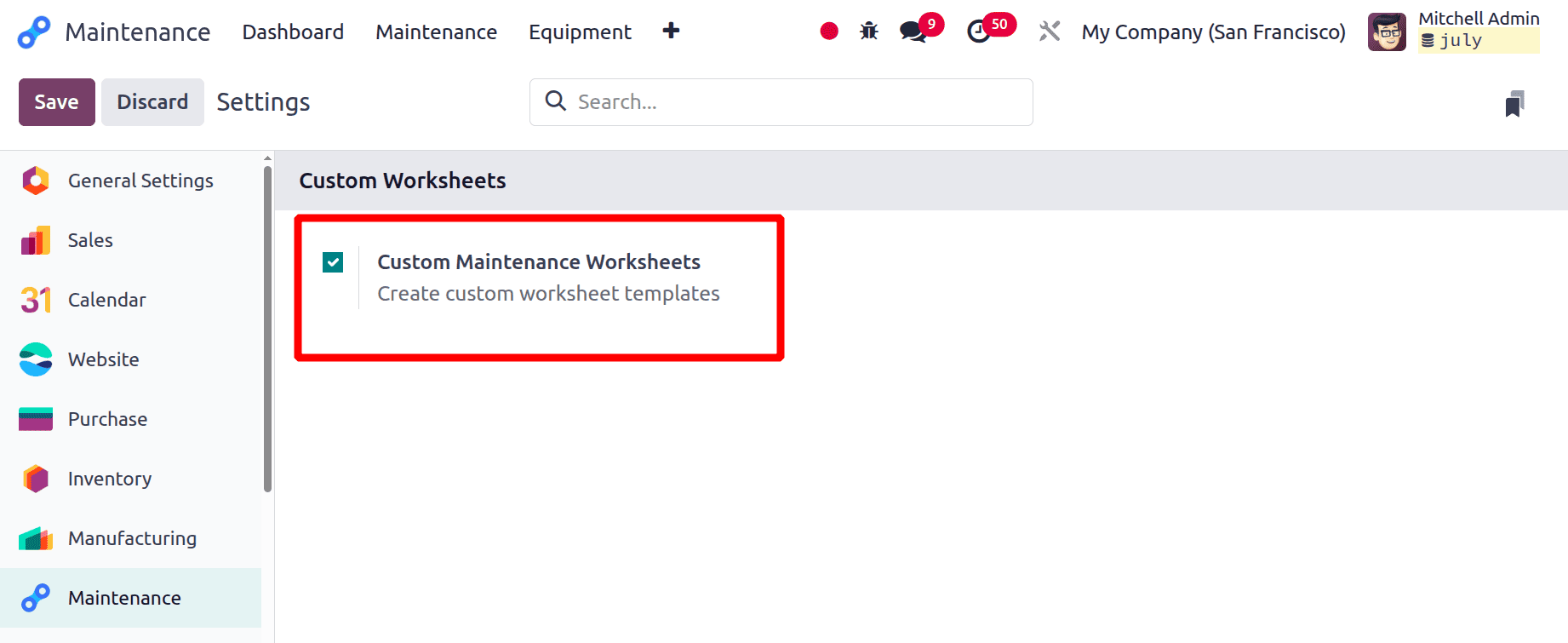
Then check the Configuration menu again. A new one named Worksheet Template added there. Click on it.
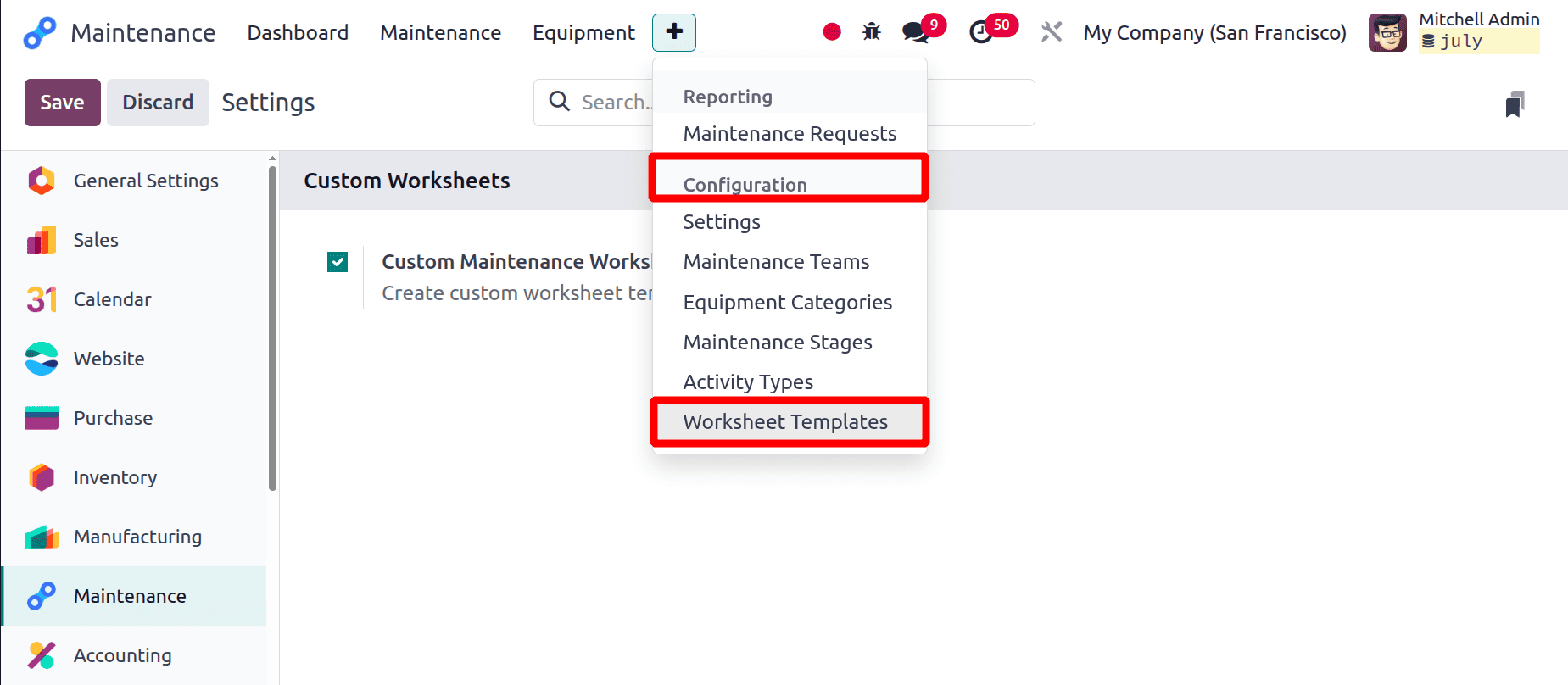
A list of Worksheet templates shown there. Name, Worksheets are shown. To design the Template click on the Design Template button. To add a new one click on the New button.

If the New button is clicked, then a new line will appear at the bottom of the list. Add the Worksheet Template name first. Here the template is named as “Worksheet Template for Workcenter Maintenance”. Click on the Design Template button to customize the template.

Then another window will appear as shown below. The left side of the screen will give some fields to customize the template. Just drag and drop the necessary fields.
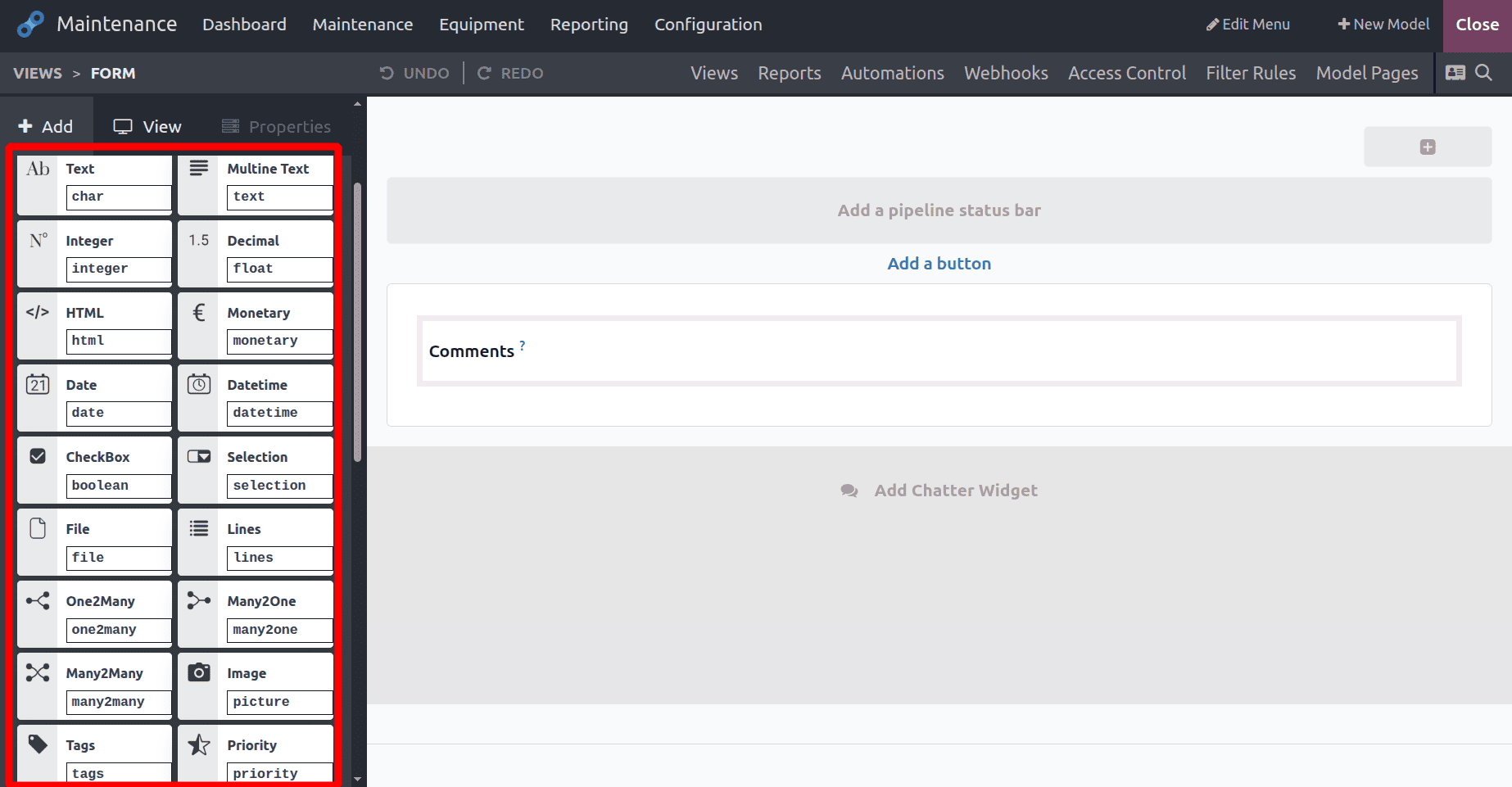
While scroll down there showed some existing fields too. Users can directly drag and drop the fields from there.
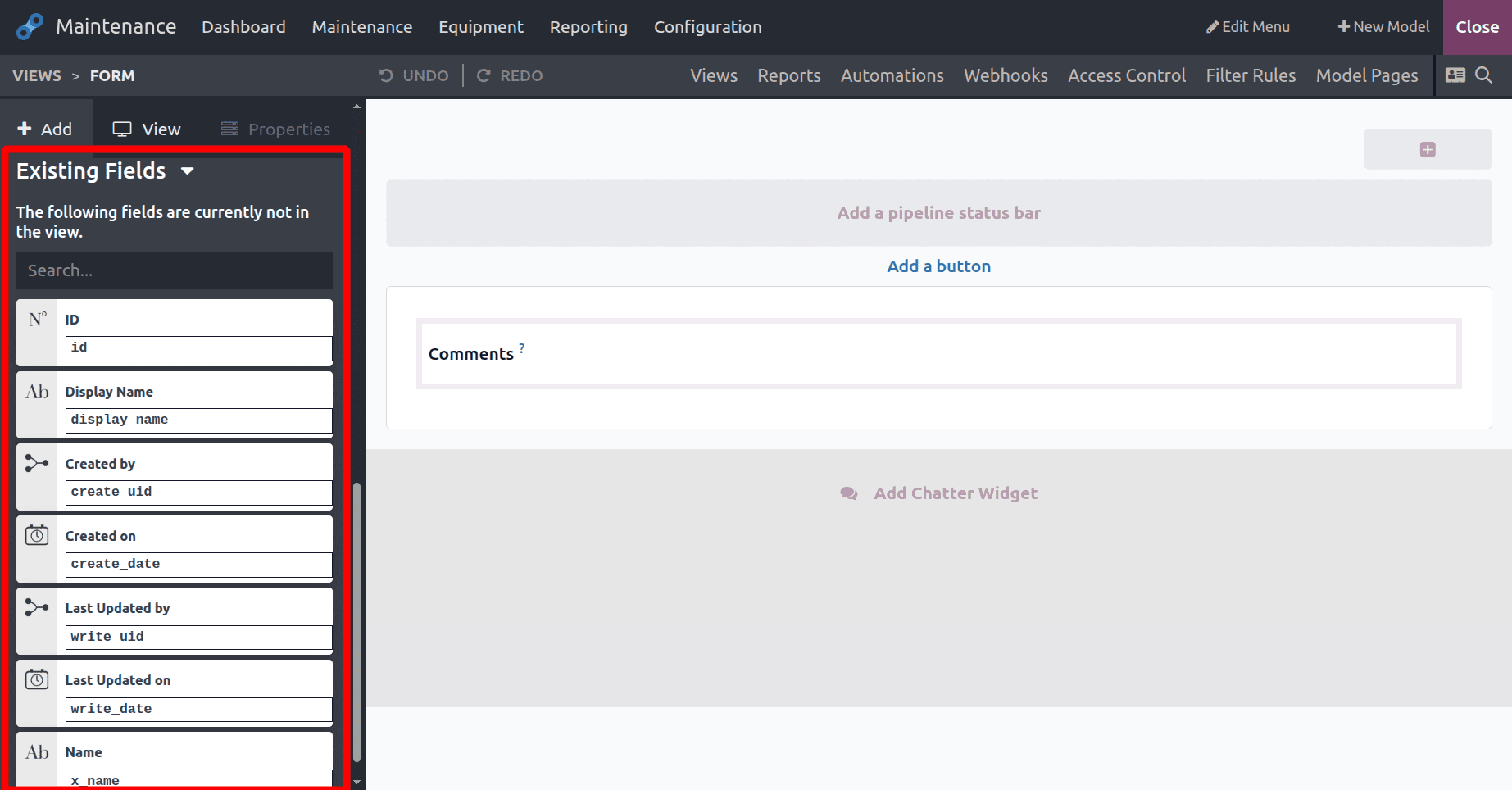
Let's add some fields. Here the ID, Display Name, Last Updated on and Last Updated by are some of the existing fields.
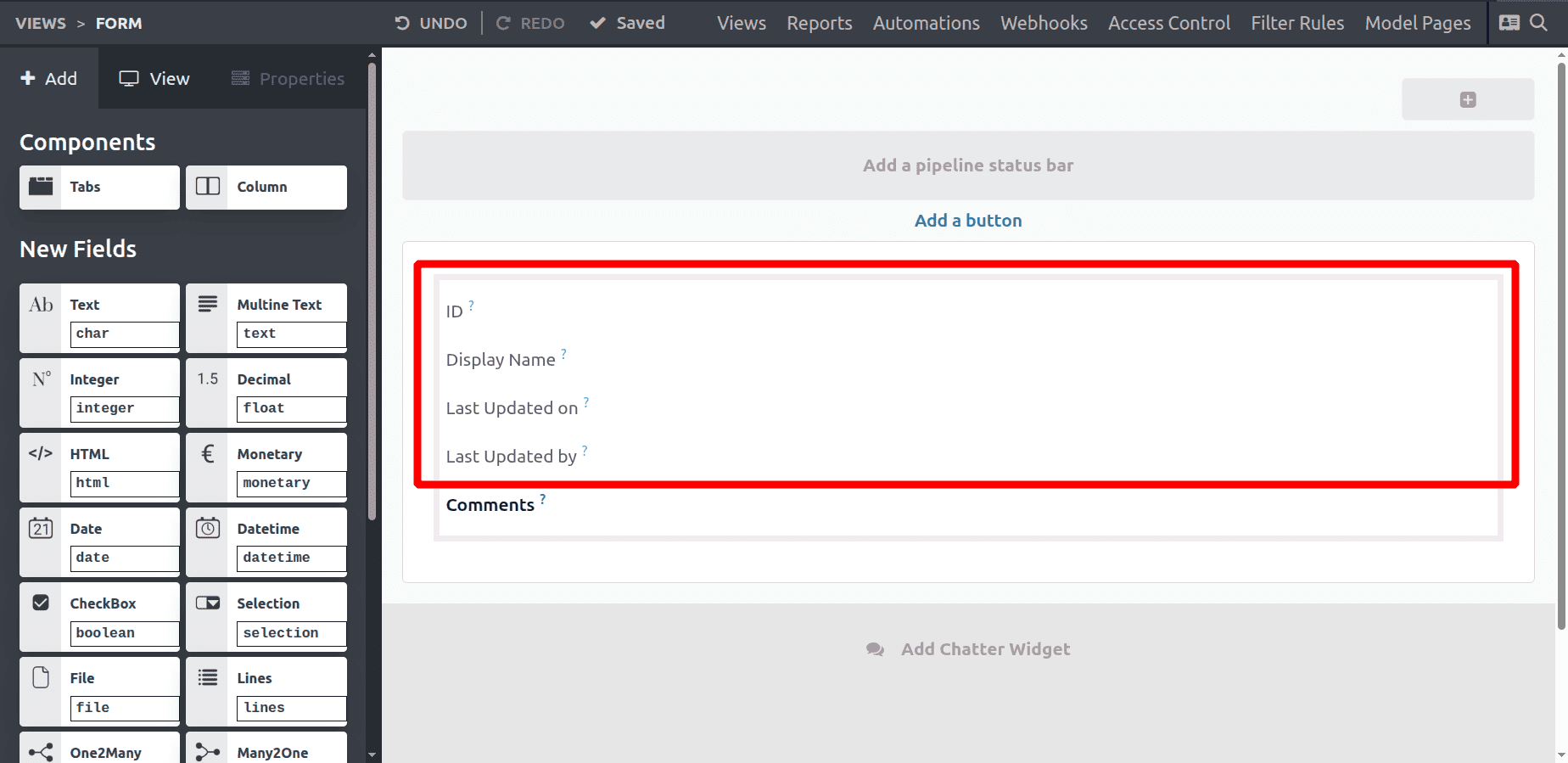
As next added a new Related field. Just drag and drop to the right screen. Then from the window choose the related fields properties. Here the field was added to fill the Work center name. Click on the Confirm button.
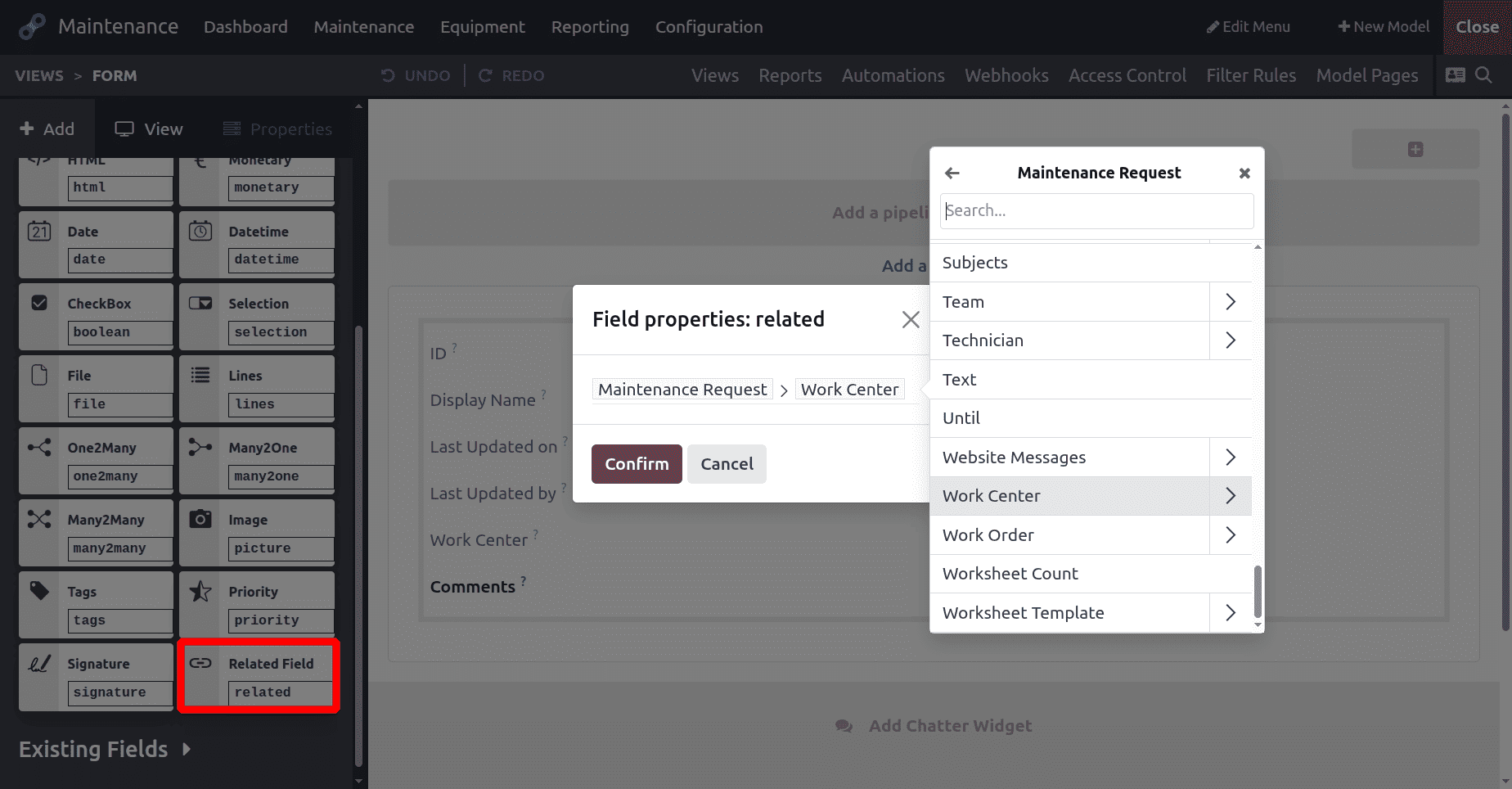
Then add the Label as Workcenter and Help tooltip as Work center name as shown below.
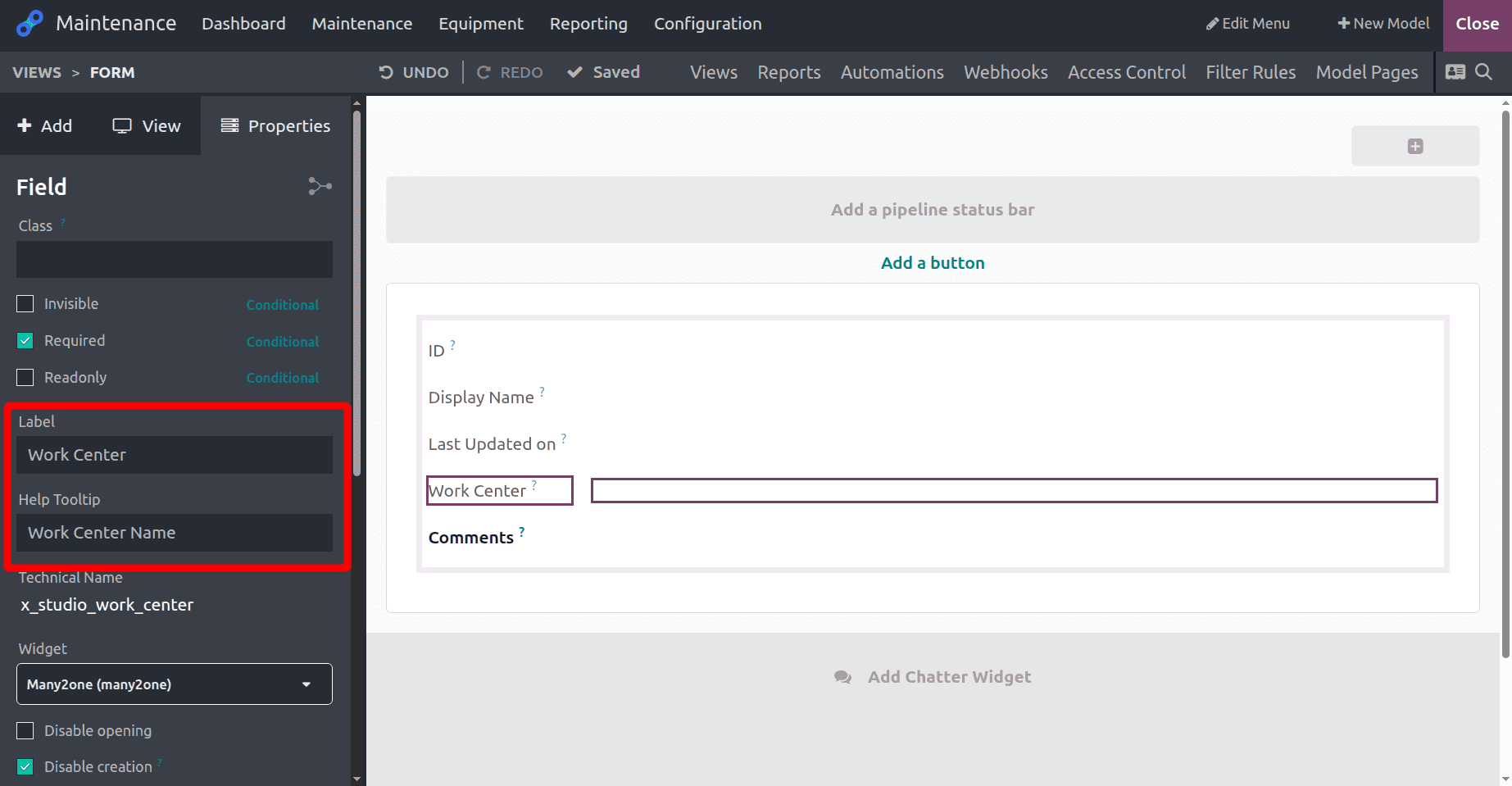
Next one is also a Related Field to update the Maintenance Team name. So which is Labeled as Maintenance Team.
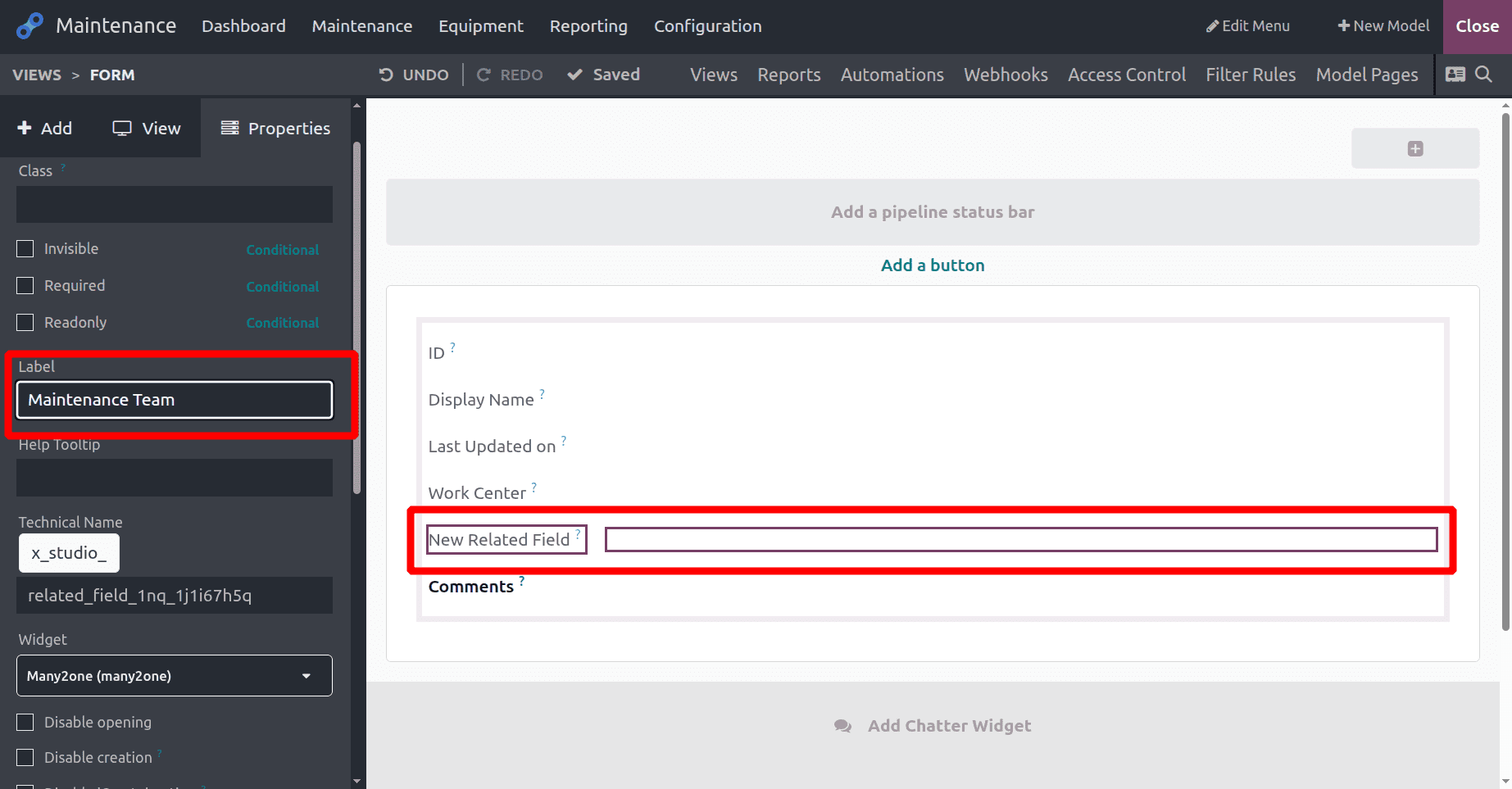
Added a Signature field to add the user’s signature. Drag and drop the signature feilds and mention the Label as Signature.
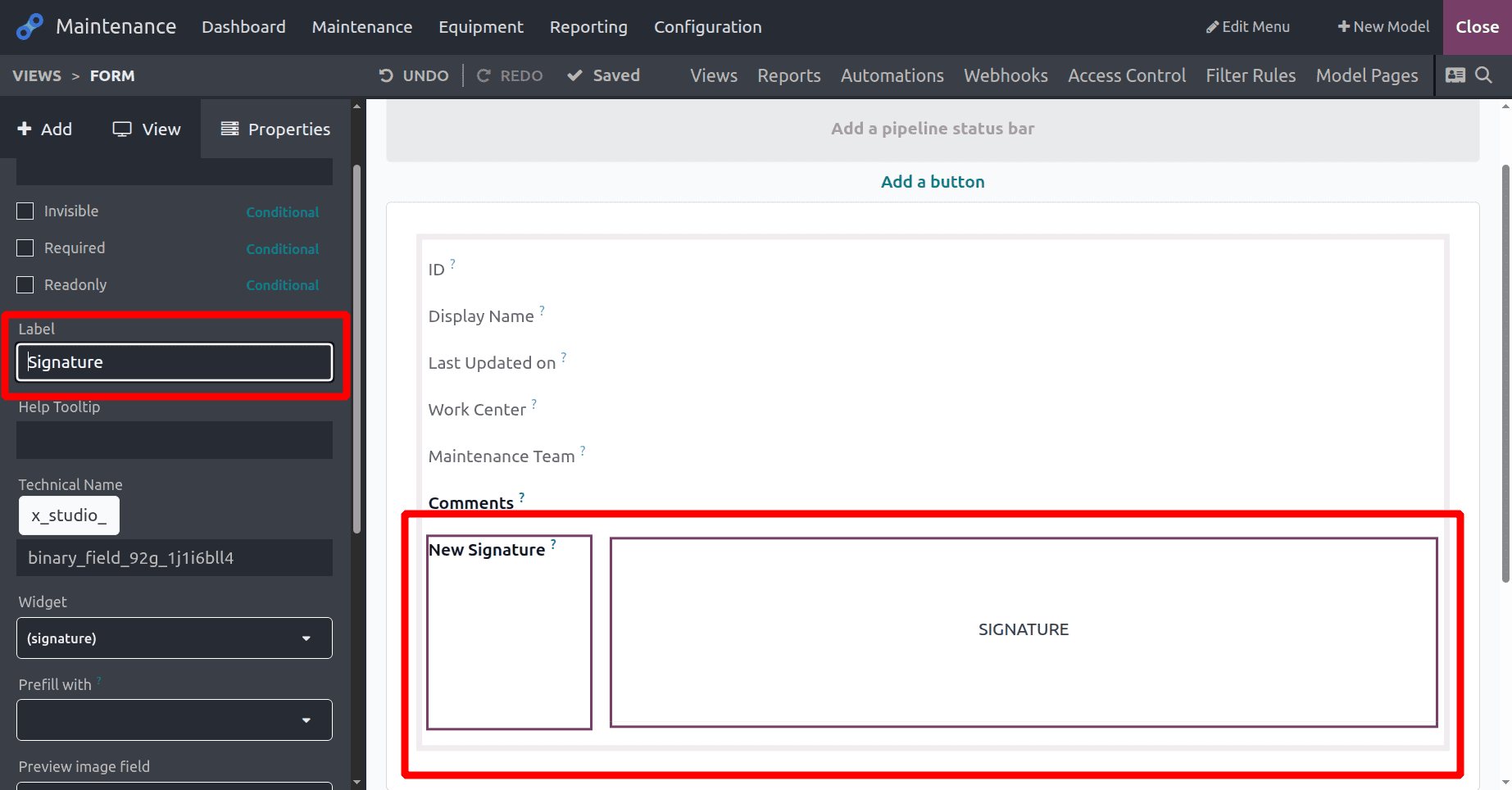
Next is the Date and Time field. Drag teatime.and drop the field, and add the label as Datetime. The Helptool adds as Current Date & Time. then to close the customisation click on the Close button placed at the right upper corner of the screen.
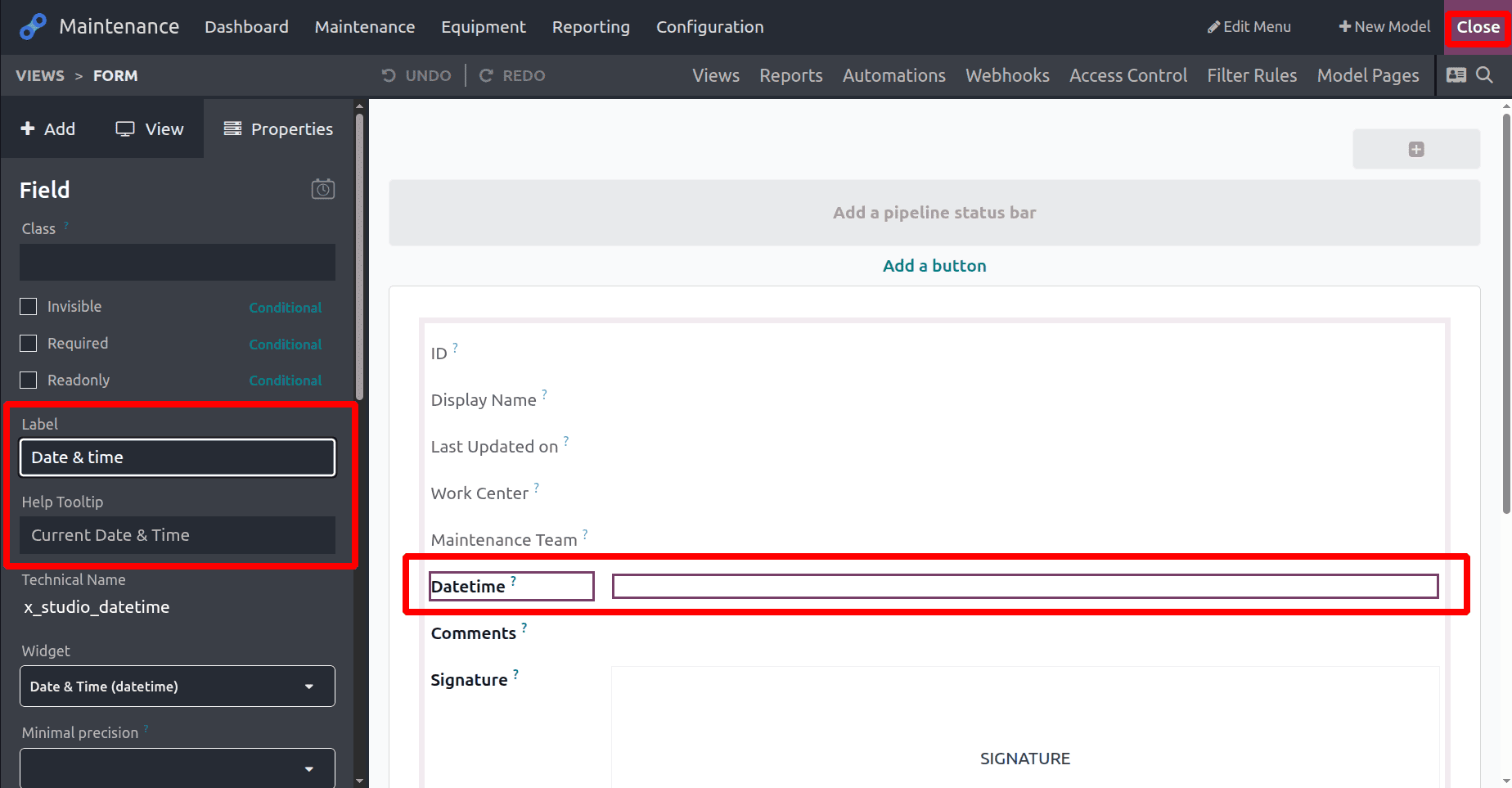
Now the customisation is completed. As shown below the worksheet template created with fields ID, Display Name, Last Updated on, Work Center, Maintenance Team, Date &Time, Comments and Signature.
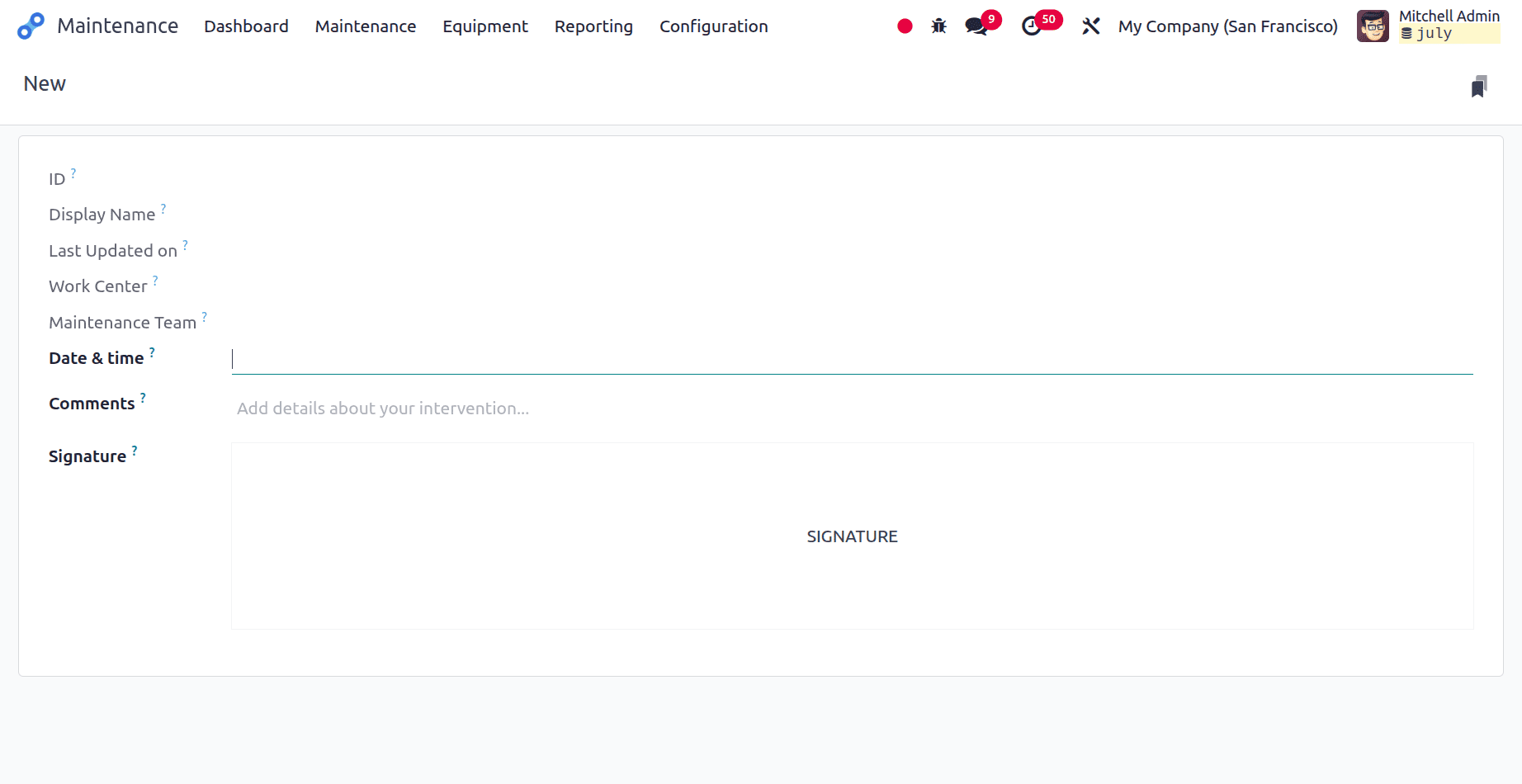
Let's check how it works. For that create a new Maintenance Request for a work center. Here the maintenance request created “Work Center Maintenance". The request is created for the Work Center and chooses the work center.
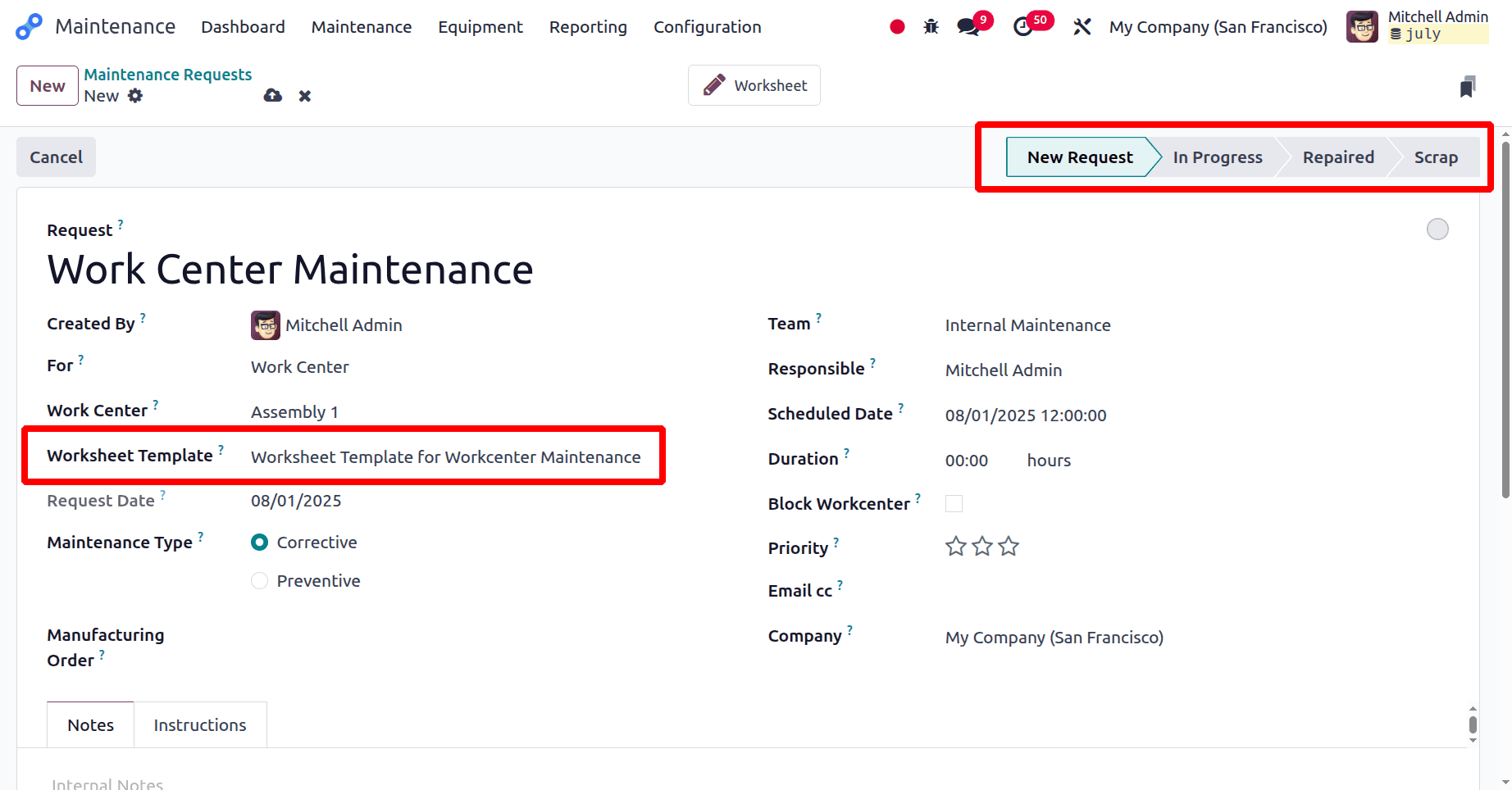
Add the other details like Team, Responsible person, Scheduled Date etc. currently the request is in the New Request stage. When the maintenance progress is ongoing then change the stage to In Progress stage. After completing the request, change the request to the Repaired stage.
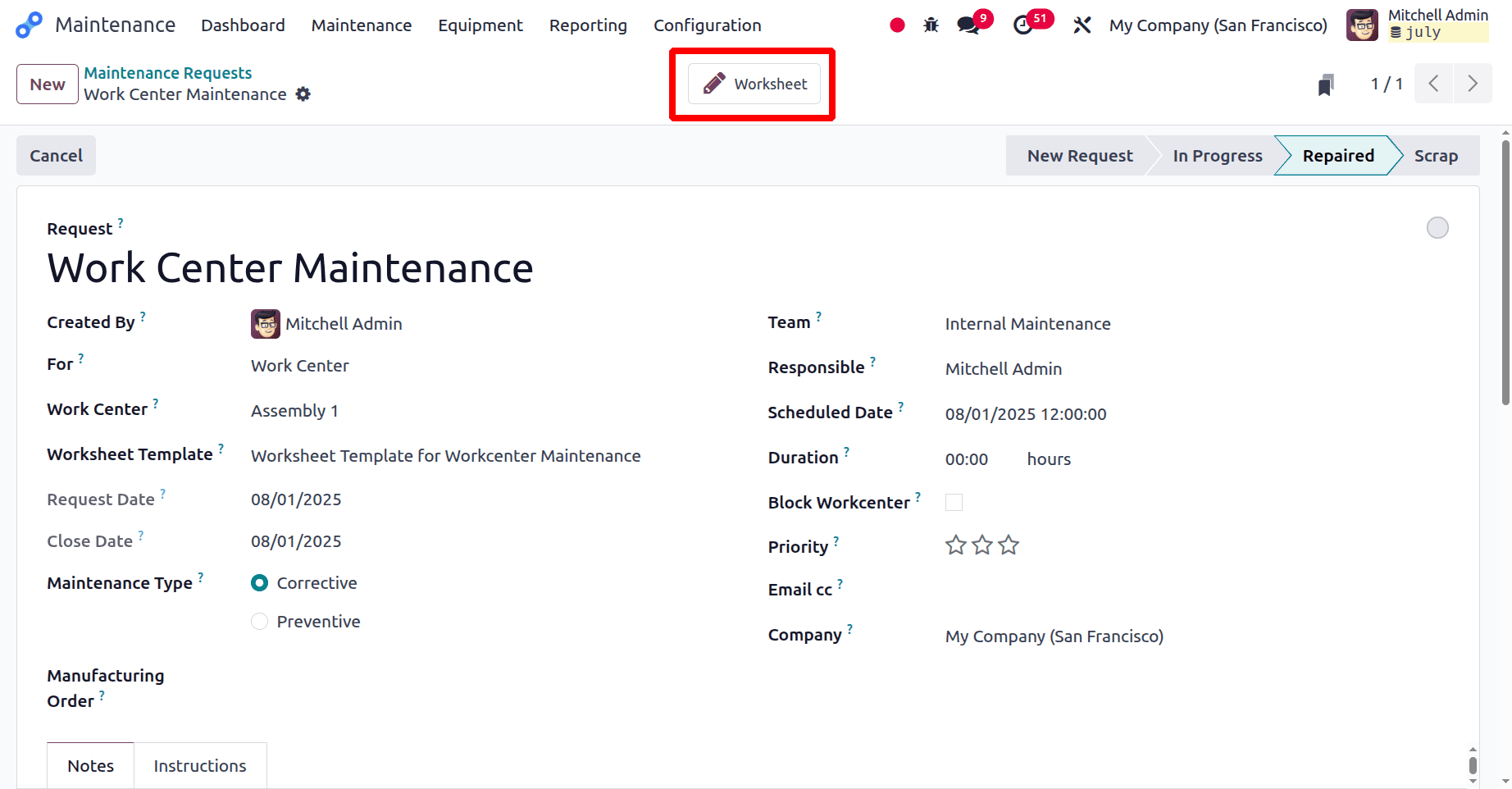
Then click on the smart tab Worksheet. Open the worksheet. Add the Date & Time first. The fields like Display Name, Last Updated on, Workceneter are updated automatically.
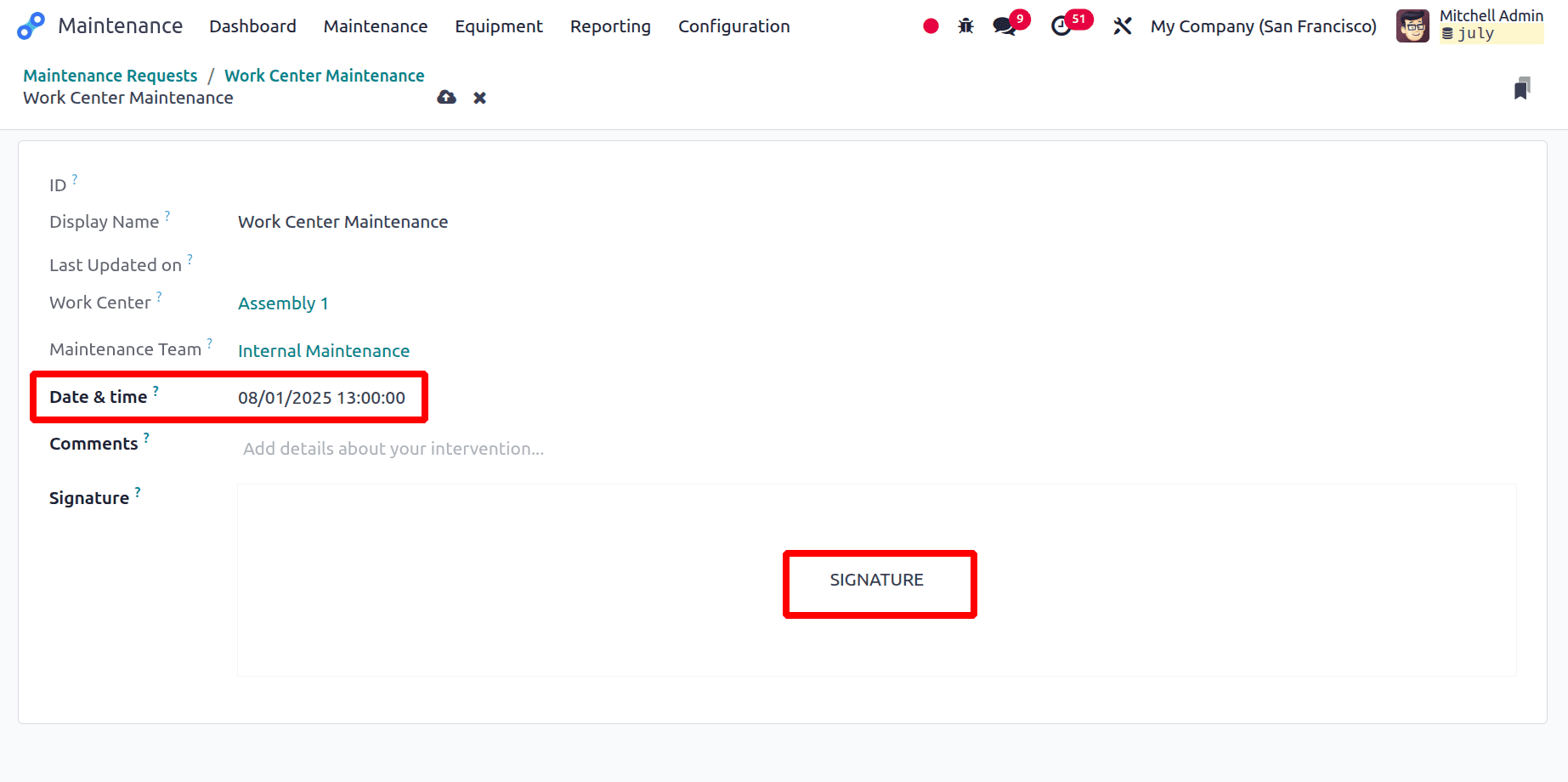
Click on the Signature to add a signature then a window will appear. There users have 2 options, either Draw the signature or upload the signature. If the Load button is clicked, the users can upload the signature from the system.
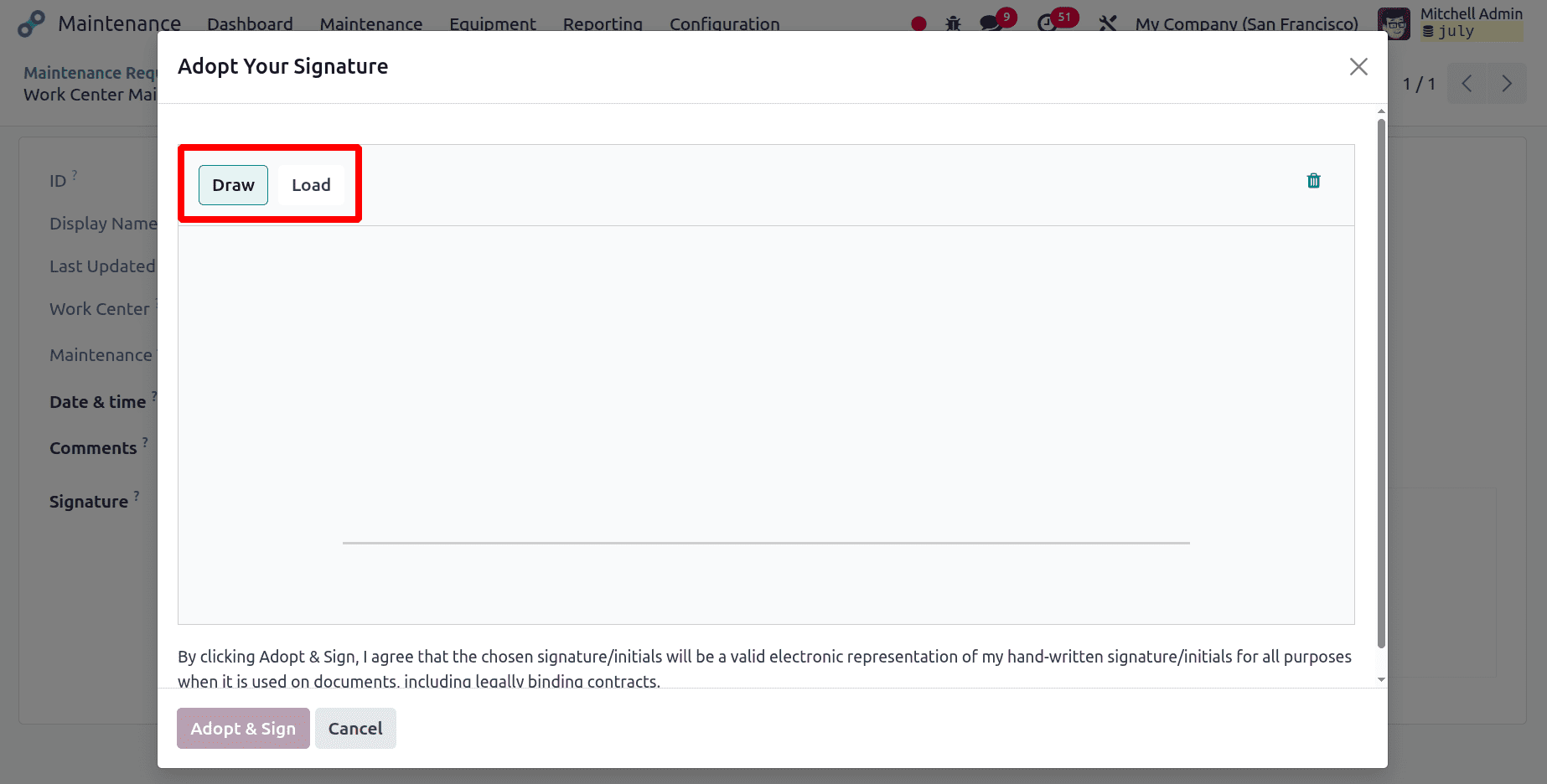
If the Draw is clicked, draw the signature manually then click on the Adopt & Sign button.
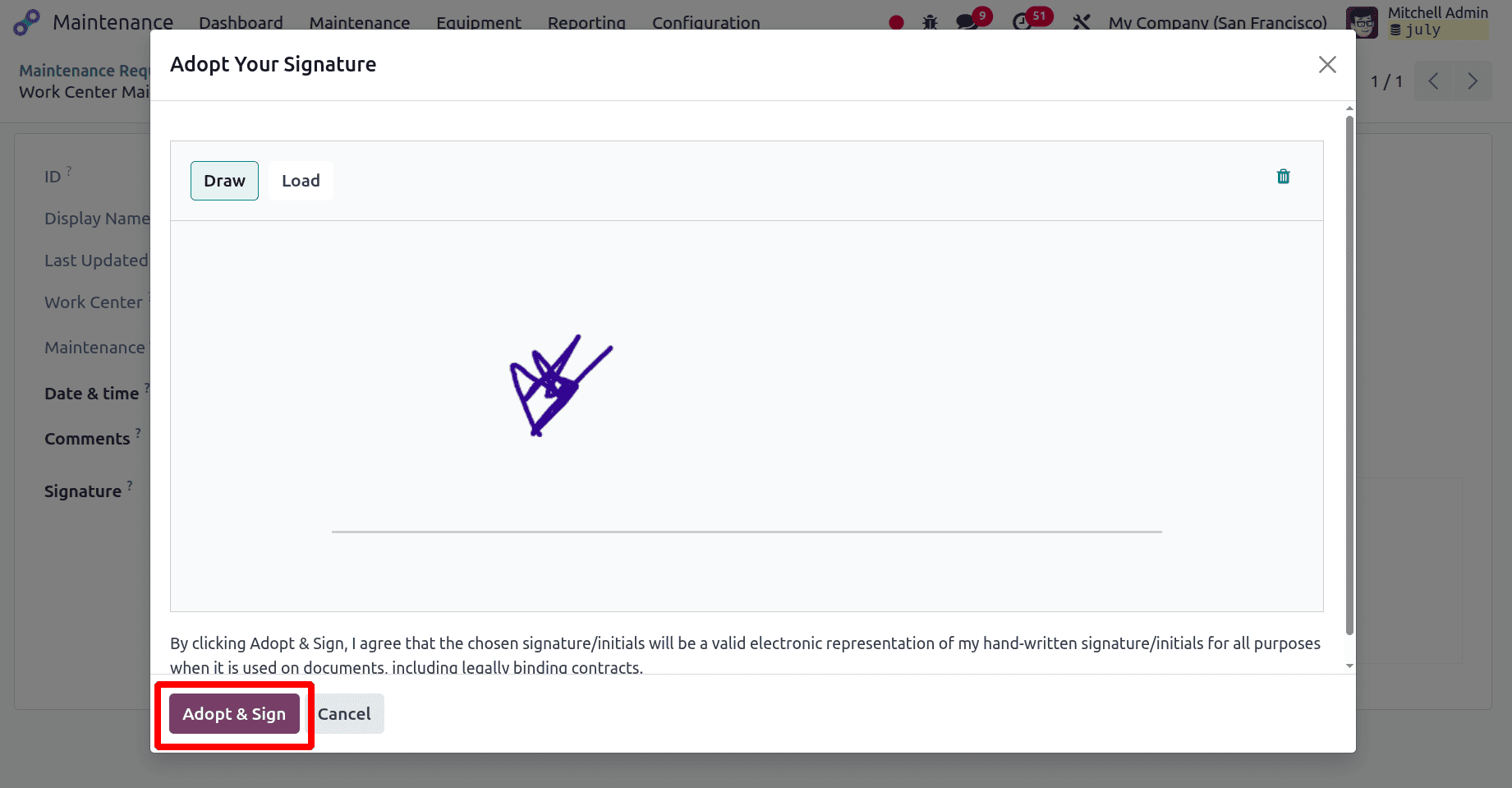
Now the Worksheet is completed. Users can add the comments too. Then all the fields are filled as shown below.
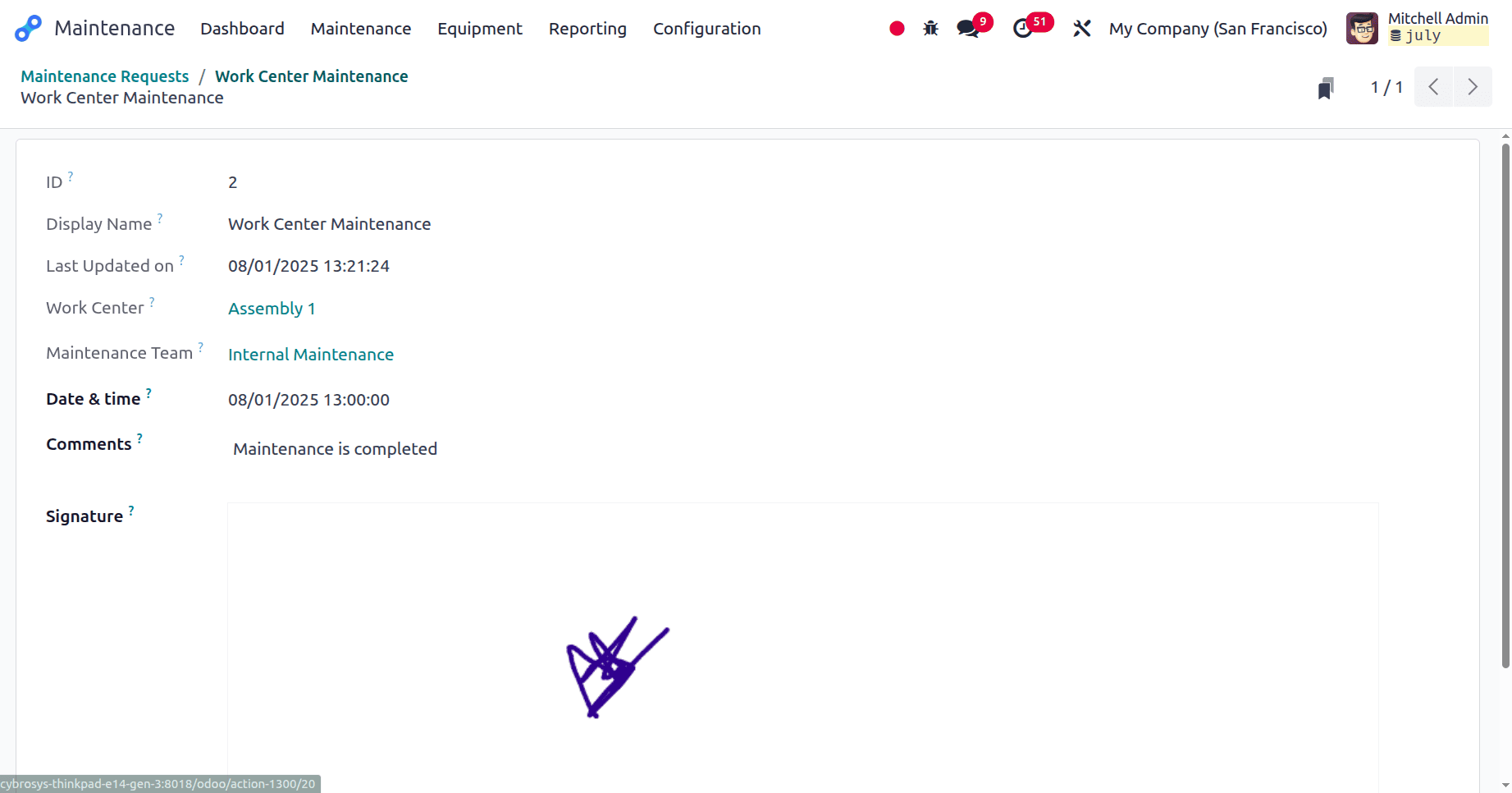
And while checking the Maintenance request, it shows that the Worksheet is completed and which is shown in a green color.
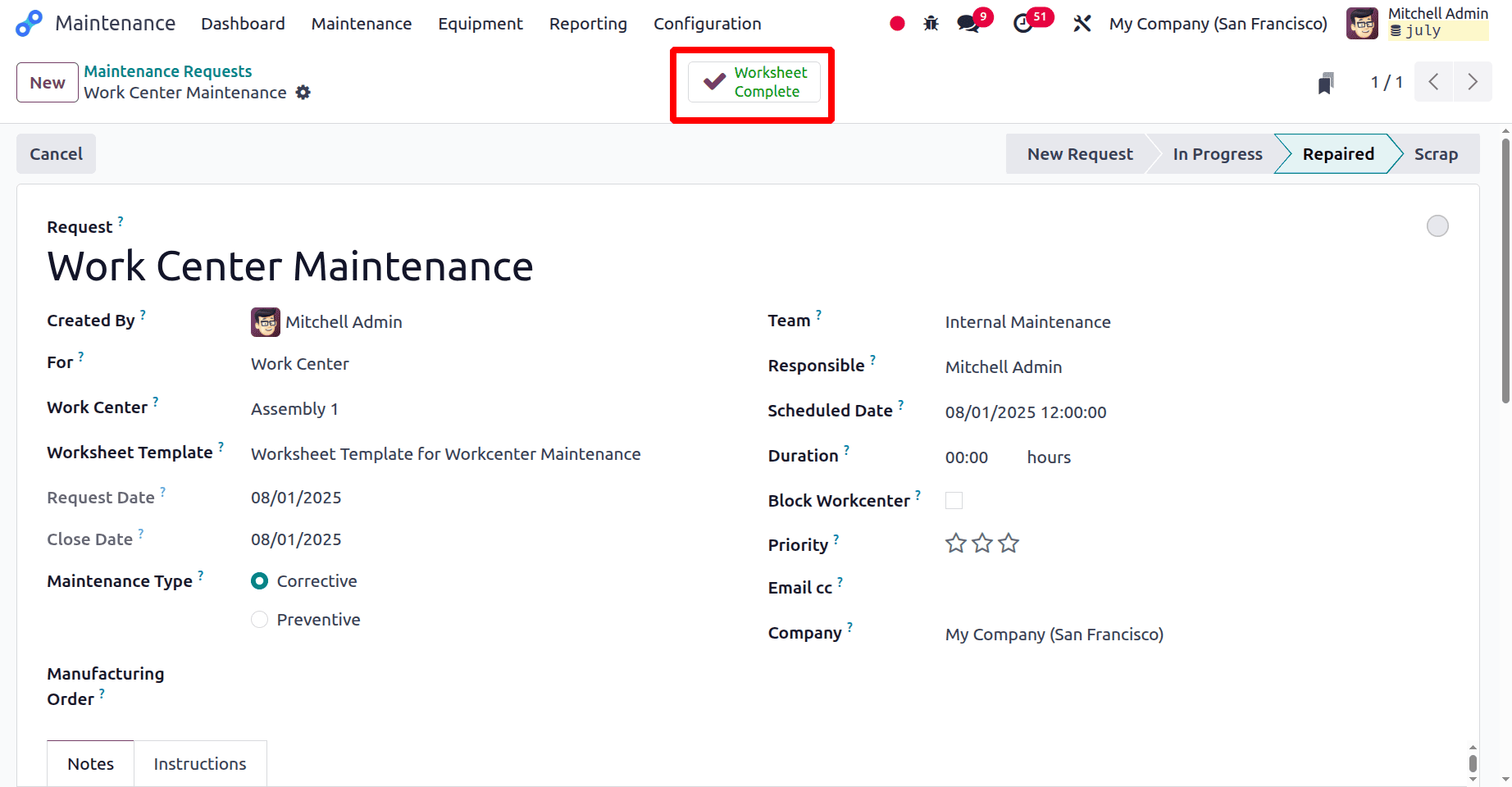
To sum up, Odoo 18 Maintenance's customisable worksheet templates provide a strong means of standardising and optimising maintenance procedures. By assisting technicians in following organised processes, they increase precision, responsibility, and effectiveness. Using this feature guarantees high-quality, consistent maintenance procedures and aids organisations in maintaining equipment more efficiently.
Change the content on application based.